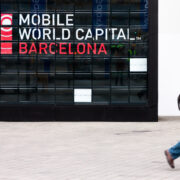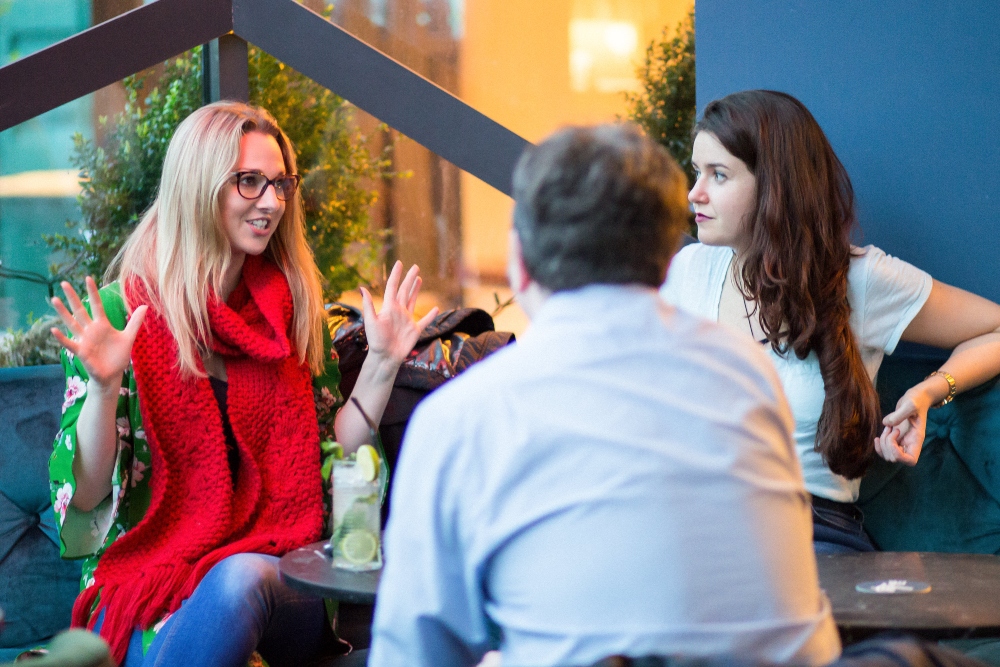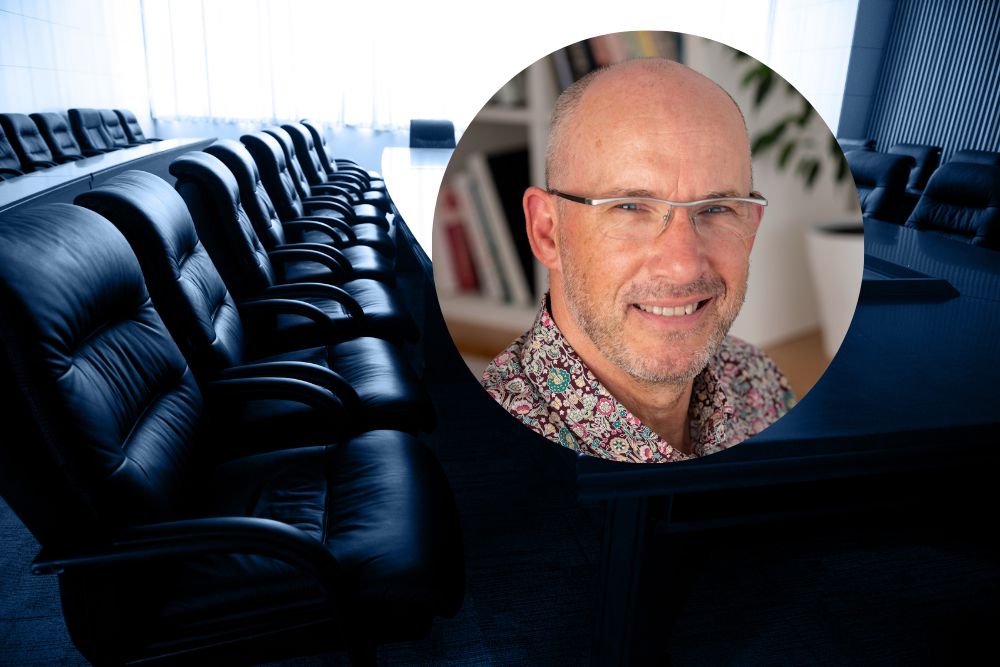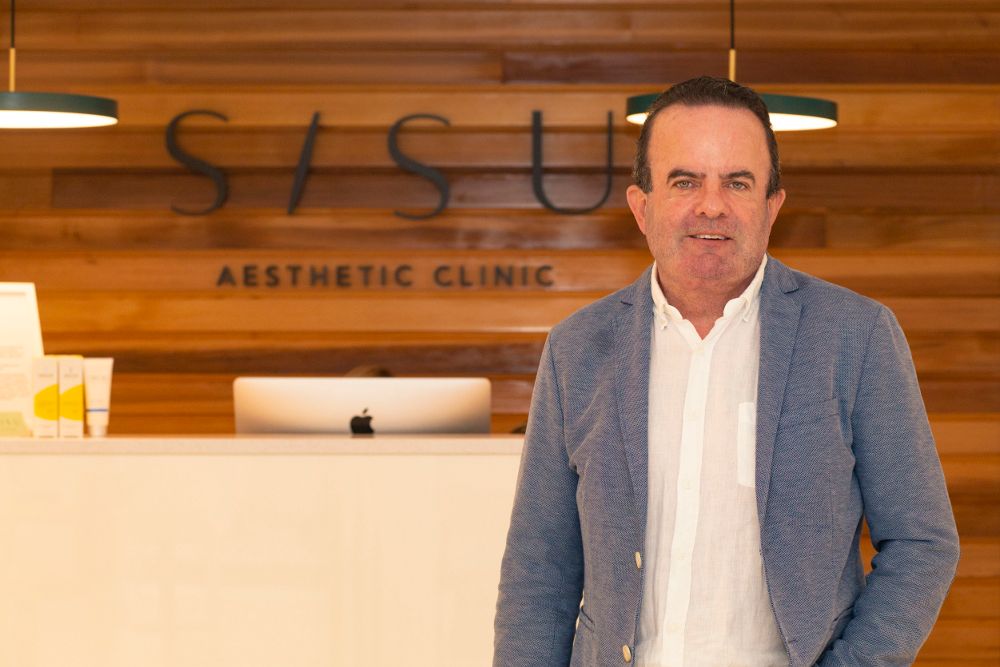Podcast Ep 102: DC Cahalane from Dogpatch Labs says Ireland needs to develop a formula for success for indigenous firms that echoes our FDI success.
An authority on the Irish start-up ecosystem, what DC Cahalane doesn’t know about start-ups in Ireland isn’t worth knowing.
Cahalane recently joined Dogpatch Labs, winner of the contract to manage Ireland’s NDRC (National Digital Research Centre), and will play a pivotal role in Dogpatch Labs’ mission to unite start-up hubs all over Ireland with the shared purpose of raising prospects for founders in all corners of Ireland.
“I think it is about bringing all of this together and getting rid of notions of a Dublin ecosystem versus outside the Pale. We’re going to recognise that we are one Irish ecosystem”
In recent weeks Dogpatch Labs revealed a new initiative that will enable founders to access more than 1,000 mentors from some of the world’s largest technology companies, including Google, HubSpot, Microsoft and Salesforce.
The monthly virtual ‘First Fridays for Start-ups’ event delivers curated expert workshops, advisory panels and fireside chats with globally successful start-up founders. Central to the programme will be the opportunity for Irish start-up founders to engage in one-on-one mentoring sessions with key employees and experts from the world’s leading multinationals.
Every month the delivery of the event will rotate around the country across the network of startup and innovation hubs – Ludgate Hub (Skibbereen), Portershed (Galway), RDI Hub (Kerry), Republic of Work (Cork), Ormeau Baths (Belfast) and Dogpatch Labs (Dublin).
Rebel yell
“What we should try to do as an ecosystem is make sure that the right knowledge and the right resources are being applied at the right time”
An early proponent behind the successful Republic of Work co-working space in Cork, Cahalane has cut his teeth in the start-up world – you could say he drank the Kool-Aid, wore many t-shirts, and walked many miles through conference halls around the world. He was part of the successful Trustev team that drove the Cork start-up to the point where it was acquired for $44m.
Synonymous with the Cork start-up scene, west Cork native Cahalane actually gained his grounding in business in the events management business after he graduated from UCC. “My first exposure to technology companies was actually in organising conferences for businesses like Microsoft and Denis O’Brien’s Digifone.
“I grew up as a kind of techie loving computers and games consoles and I got the opportunity to work with multinationals in that space.”
Despite having no formal marketing background, Cahalane found his calling when he began organising publicity launches for tech firms.
This road eventually led him to meeting Pat Phelan, co-founder of the SISU Aesthetics chain, who at that point had exited his first start-up Cubic Telecom and was hard at work on the creation of Trustev. Cahalane was mulling an offer to join Trustev at one of the early Web Summits when he noticed how famous tech founders like Liam Casey and Michael Acton Smith all knew Pat. “In the five minutes we were standing there, half of the tech gentry of Europe walked past and signalled Pat in some way. So, I thought, ‘I’m going to work for this guy.’”
Trustev was a stealth start-up born in Cork but which in very little time was making a name for itself worldwide. “We kept it all very quiet for six months and literally a year later at the next Web Summit we announced a $3.2m raise for Trustev, which was the largest seed round raised in European history at the time.”
The year was 2013 and Phelan and Cahalane along with notable Cork entrepreneurs Liam Casey and Dan Kiely masterminded bringing 400 Cork entrepreneurs on a chartered train from Cork, through Dublin, almost to the doors of the RDS.
He believes the Irish start-up ecosystem has come a long way in less than 10 years. “The ecosystem was a very different place then, much smaller and more compact which had its advantages. Everybody knew everybody else.
“The ecosystem has come on an awful lot but back then it was very scrappy,” says Cahalane, who praises Enterprise Ireland for making it easy for up-and-coming companies to attend key tech industry events such as SXSW in Texas through the simple expedient of block-booking hotel rooms.
There’s something about Cork
I put it to Cahalane that the example set by Liam Casey, Pat Phelan and the founders of Voxpro Dan and Linda Kiely, not to mention unicorns in waiting like Teamwork, Workvivo and Keelvar, proves there is something special about Cork from an entrepreneurial perspective. And it’s not just in the water. Indeed, California tech giant Apple was only a wee start-up itself when it opened operations in Cork in 1980 and today has more than 6,000 people there.
“That bet [on FDI] that Ireland made 30 years ago, is it time for Ireland to make a bet on its indigenous companies?”
“You know, there’s a reason why it’s the Rebel County,” Cahalane laughs. “It is, of course, a fascinating place. Most people who are from Cork leave for a while, but they are always back. Liam Casey from PCH, who has huge operations in China and San Francisco, you are more likely to meet walking down a street in Blarney. It was the same at Trustev, wherever we went, we always ended up back in Cork.
“To me it was always a place where it was distraction-free. It was all about getting the work done.”
He also credits Cork with having a tighter entrepreneurial and innovative ecosystem than most cities, with two universities as well as founders and multinationals all crammed into a small city.
But while Cork had the ingredients, the passion and the proximity of founders, multinationals and academics, all it was missing was a central gathering point and Republic of Work filled this gap.
Prior to the Republic of Work Cahalane had been involved in setting up various start-up meet-ups. “Every start-up is different in some way. But actually an awful lot of how they sell, how they market, how they hire talent and raise money is pretty identical. But that is a very different foundation than that of a traditional SME that benefits from a lot of Government supports that wouldn’t be relevant to a tech start-up, which would have negative revenues in the early stages but would somehow be gaining a valuation.
“So one of the things I tried to do with the Republic of Work was try to build an ecosystem where people could understand the difference between traditional SMEs where we have some incredible businesses, and the innovation-driven enterprises that are our technology start-ups. And there is a very substantive difference between the two, and sometimes we don’t acknowledge that difference.
“What we should try to do as an ecosystem is make sure that the right knowledge and the right resources are being applied at the right time.”
From starting to scaling
As well as the success of the Collison brothers’ Stripe which is now worth an estimated $95bn, Ireland now has six unicorn businesses including Fenergo, LetsGetChecked, Workhuman, Flipdish, Intercom and most recently Wayflyer.
For any one who had any doubts about Ireland’s indigenous tech prowess, these successes and the prospect of many more should ensure that the right minds are paying attention.
“If you had said to someone 10 years ago that Ireland could produce even one company worth more than $1bn you would have been accused of being slightly mad. But if we want to make this sustainable we need to stop these being outlier cases.
“The reality of it now is that we are starting to see this ecosystem come together and we could create an awful lot more talent in a world where the 12.5% tax rate for FDI (foreign direct investment) is going away.
“That bet [on FDI] that Ireland made 30 years ago, is it time for Ireland to make a bet on its indigenous companies?
“So what we’re trying to do at Dogpatch is look at the different elements of the ecosystem and how we can level them up. In the last couple of years we’ve seen a massive levelling up in the kind of investor landscape in terms of the money available in Ireland and from overseas. But one area we looked at where we didn’t see a levelling up happening naturally was where we have the world’s biggest and best technology companies on our doorstep, but I don’t think what people often appreciate is the amount of Irish leadership in those companies around the world.”
Cahalane believes we need to harness the global expertise that sits within the minds of Irish people working in multinationals and share that knowledge, nous and know-how with innovative start-ups with the potential to be global brands in a relatively short time.
“They all want to wear the green jersey and see Irish indigenous enterprises do well. So while First Fridays is not a new initiative – it’s been running more than five years thanks to people like Paddy Flynn from Google – but what we’ve done now is we’ve essentially rebooted it and opened the doors to allow not just Google but Salesforce, HubSpot and Microsoft join and we’ve another two partners coming aboard.
“We think it is a natural thing for Irish people who work in these big multinational companies and who have a global view of things – what Irish start-ups need is to have a bigger, more global picture of things. Gone are the days when a start-up in Cork would consider their first expansion is to go to Dublin. It is now about going to another country. So if nothing else, connecting start-ups with employees in these large multinationals will create a way to help them think bigger. There’s a massive amount of domain expertise – sales, marketing, engineering – and if we can use the presence of multinationals in Ireland as a driver for indigenous Irish enterprise, then that’s an advantage that many other countries wouldn’t have.”
Cahalane Ireland needs to think more strategically about its SMEs, especially its innovation-driven enterprises. “What we’re trying to do is build something sustainable so that in 50 years’ time the start-ups are still going to be able to take advantage of a very dynamic ecosystem here.”
An optimist at heart, the way Cahalane sees it many of the building blocks for a long-term future of Irish tech are being assembled, a case in point being the Immersive Software Engineering Programme at University of Limerick that is being pioneered by the Collison brothers.
He sees the role of the rebooted NDRC and programmes like Dogpatch’s First Friday as part of that narrative; unlocking access and breaking down distance barriers for start-ups in Kerry or Galway or Mayo to tap into the very ecosystem built up around Silicon Docks.
“I think it is about bringing all of this together and getting rid of notions of a Dublin ecosystem versus outside the Pale. We’re going to recognise that we are one Irish ecosystem.
“I call this the entrepreneurial infrastructure, laying down bridges. The infrastructure that currently underlines entrepreneurship in Ireland hasn’t changed a lot over the last 10 or 15 years. We need to make some tweaks to it.”
-
Bank of Ireland is welcoming new customers every day – funding investments, working capital and expansions across multiple sectors. To learn more, click here
-
Listen to the ThinkBusiness Podcast for business insights and inspiration. All episodes are here. You can also listen to the Podcast on:
-
Apple
-
Spotify
-
SoundCloud





